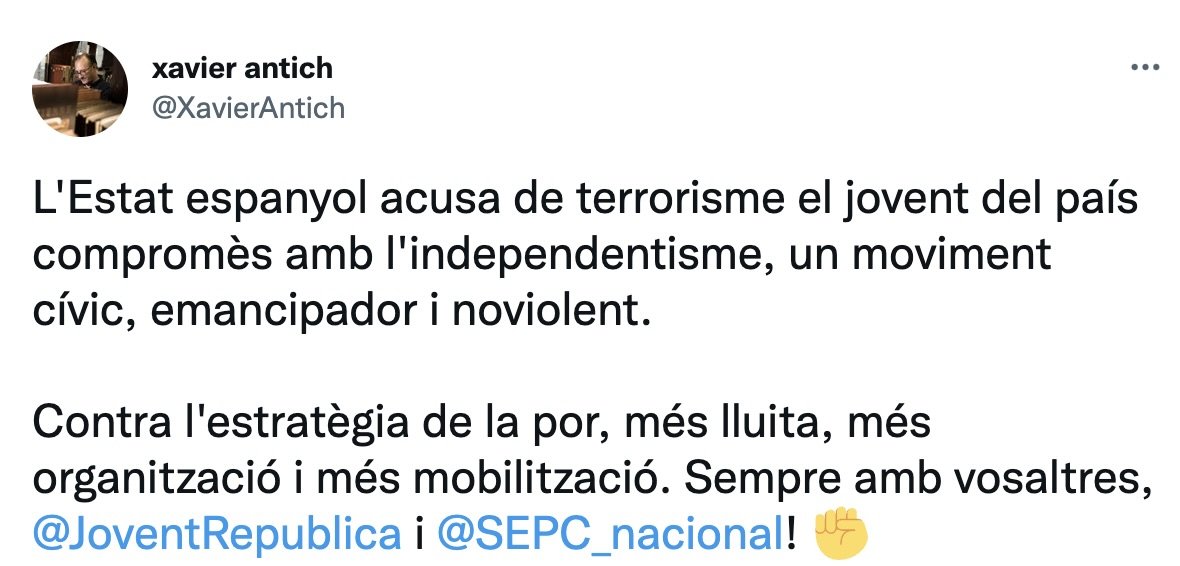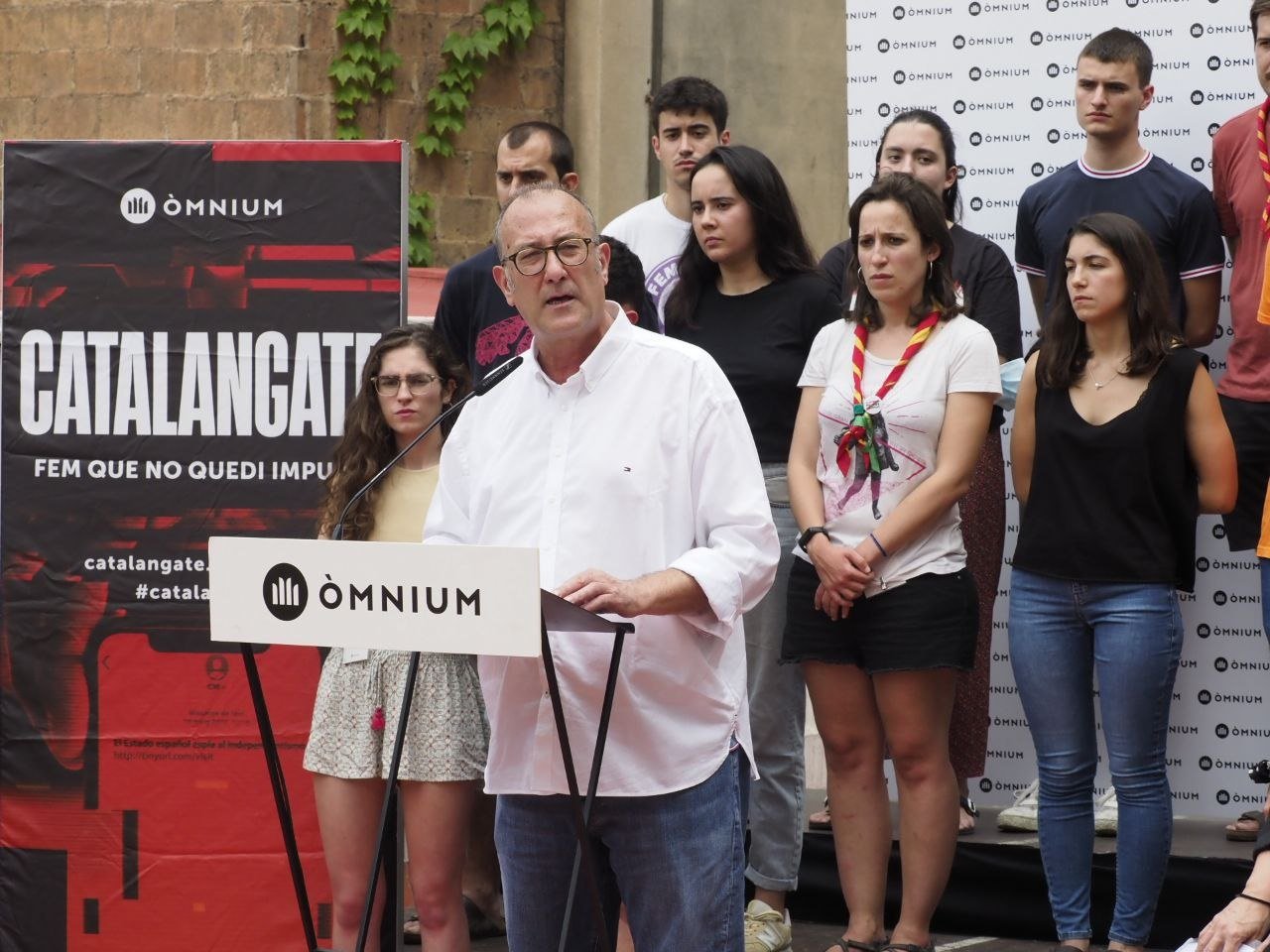The Spanish state has admitted and justified the illegal planting of undercover officers in two pro-independence youth organizations, the Students' Union of the Catalan-speaking Countries (SEPC) and the ERC party youth wing, Jovent Republicà. The justification from the Spanish interior ministry includes claims directly linking the Catalan independence movement with terrorism, as it stated in the ministerial response to the judicial complaint laid by Òmnium Cultural before the National Audience court at the end of July, in which it argued: "We are the main body defending collective rights".
The president of Òmnium, Xavier Antich, has stated that these practices by Fernando Grande-Marlaska's interior ministry represent a clear violation of fundamental rights, and framed them in the context of the "general case" against the Catalan independence movement, in which the Spanish state acts with total impunity and outside the law to suppress pro-sovereignist groups. "There is a state strategy to link the independence movement to terrorism", says Antich, outlining how "the state invents a false violence because it is unable to face the Catalan political conflict democratically, and applies measures specific to the fight against terrorism against a democratic and peaceful movement, that of Catalan independentism".
❗️ El Ministeri de l'Interior avala la guerra bruta: vincula el moviment independentista amb el terrorisme i justifica les infiltracions al @SEPC_nacional i al @JoventRepublica pic.twitter.com/OUL8xbWM3u
— Òmnium Cultural (@omnium) September 5, 2022
Translation of tweet: "The [Spanish] interior ministry endorses the dirty war: it links the [Catalan] independence movement with terrorism and justifies planting undercover agents in the @SEPC_nacional and @JoventRepublica" — Òmnium Cultural
The president of the pro-independence cultural association stresses the seriousness of a situation where "a supposedly democratic state invents non-existent violent practices". Antich considers that all of this is part of "a campaign of fear to scare pro-independence activism". For this reason, he remarked that "the best response to the state's dirty war is to once again demonstrate on the streets the strength of this democratic movement, that of independence". On social media, the Òmnium leader expressed his support for the two youth organizations and in an interview with Catalunya Ràdio, he admitted his surprise at receiving such an explicit official answer. So much so that in the five pages in which the interior ministry justifies its actions, it points out aspects such as membership of multiple groups as a dangerous element of the fabric of the sovereignist movement, as well as making the claim that such groups are "giving origin to dynamics that are violent and philo-terrorist" - that is to say, pro-terrorist dynamics.

Translation of tweet:
"The Spanish state makes "terrorism" accusations against the youth of Catalonia who are committed to independentism, a movement that is peaceful, emancipative and non-violent. Against the strategy of fear, more struggle, more organization and more mobilization. Always with you @JoventRepublica and @SEPC_nacional!" - Xavier Antich
In addition, the document from the interior ministry that Òmnium has received as a response argues that it considers it "legitimate, suitable and appropriate" to place undercover agents in youth movements to capture information, linking this directly with the usual practices in the prevention of terrorism on the basis of, according to the ministry, alleged violent actions and strategies in the independence movement: "people who belong to the sphere of pro-independence associations, encompassing a wide range of associations, work towards the achievement of the illegal independence of Catalonia, even carrying out in some cases radical-violent types of actions within the framework of the global secessionist strategy". Regarding the techniques used by the police monitoring these youth movements, the Ministry justifies it by pointing out that they are tactics included in the anti-terrorist protocols.
In spring 2022, two cases came to light involving undercover members of Spain's National Police and pro-independence youth groups in Catalonia. In one case, an officer managed to spend two years posing as a member of the Students' Union of the Catalan-speaking Countries, while also being active in other Barcelona groups, like the left-wing housing action group Resistim al Gòtic; while in a second case, the Spanish-government based National Security department made an attempt to recruit a former member of the ERC youth wing, asking him to rejoin that group as a way of spying on the actions of a second group, the Batec collective.

